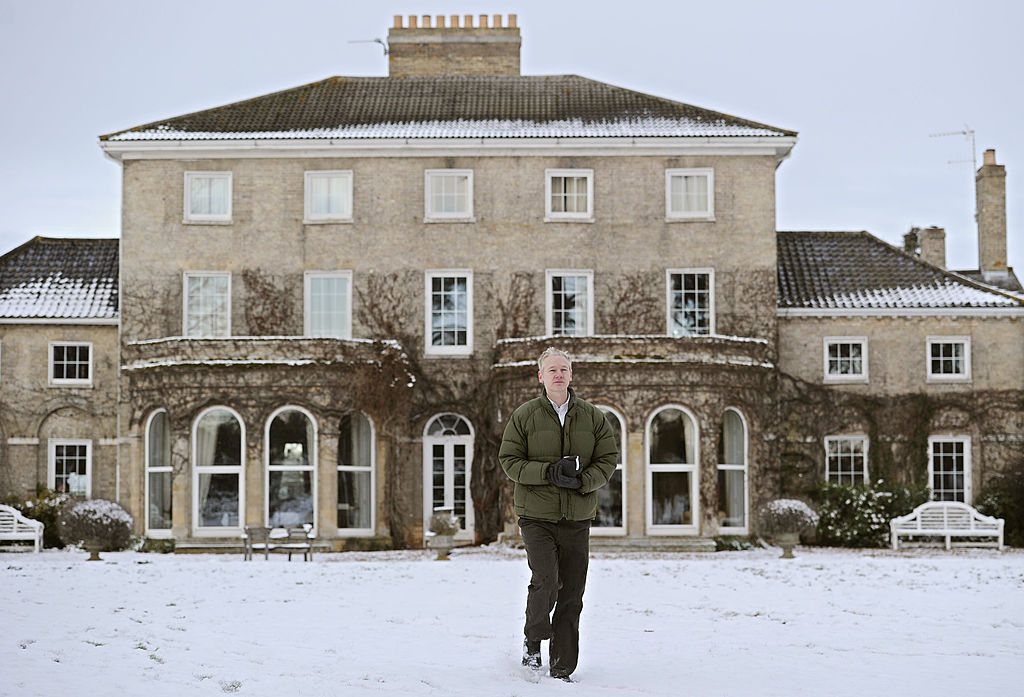Julian Assange and Donald Trump have more in common than hating Hillary Clinton, says ex-WikiLeaker


A free daily email with the biggest news stories of the day – and the best features from TheWeek.com
You are now subscribed
Your newsletter sign-up was successful
Julian Assange isn't a Russia spy, but he is taking revenge on Hillary Clinton, and "if an anonymous or pseudonymous group came offering anti-Clinton leaks, they'd have found a host happy not to ask too many awkward questions," James Ball, who worked with WikiLeaks when it made its biggest splash, in 2010, writes at BuzzFeed News.
Anti-Clinton animus isn't the only thing driving Assange in 2016, after four years of self-imposed exile in a tiny apartment in the Ecuadorean Embassy in London, Ball writes: Assange thinks himself "the equal of a world leader," and the leak of Clinton campaign chairman John Podesta's emails "is his shot at reclaiming the world stage, and settling a score with Hillary Clinton as he does so." Yes, Donald Trump, the main beneficiary of this hack, is now praising WikiLeaks, as are many of his supporters, while Assange has lost many fans on the liberal left, Ball says, but "neither Assange nor WikiLeaks (and the two are virtually one and the same thing) have changed — the world they operate in has."
Still, Trump and Assange have quite a bit in common, Ball says: Like Trump, "Assange is a gifted public speaker with a talent for playing the media, struggling with an inability to scale up and professionalize his operation, to take advice, a man whose mission was often left on a backburner in his efforts to demonize his opponents." Neither seems bothered by Russia's authoritarianism. And then there's Trump and Assange's insistence on getting everyone to sign nondisclosure agreements — the thing Ball says led to his estrangement with Assange:
The Week
Escape your echo chamber. Get the facts behind the news, plus analysis from multiple perspectives.

Sign up for The Week's Free Newsletters
From our morning news briefing to a weekly Good News Newsletter, get the best of The Week delivered directly to your inbox.
From our morning news briefing to a weekly Good News Newsletter, get the best of The Week delivered directly to your inbox.
Those working at WikiLeaks — a radical transparency organization based on the idea that all power must be accountable — were asked to sign a sweeping nondisclosure agreement covering all conversations, conduct, and material, with Assange having sole power over disclosure. The penalty for noncompliance was £12 million. I refused to sign the document, which was sprung on me on what was supposed to be a short trip to a country house used by WikiLeaks.... Given how remote the house was, there was no prospect of leaving. I stayed the night, only to be woken very early by Assange, sitting on my bed, prodding me in the face with a stuffed giraffe, immediately once again pressuring me to sign. It was two hours later before I could get Assange off the bed. [Ball, BuzzFeed News]
Read more of Ball's sometimes sympathetic, sometimes scathing look at Assange at BuzzFeed News.
A free daily email with the biggest news stories of the day – and the best features from TheWeek.com
Peter has worked as a news and culture writer and editor at The Week since the site's launch in 2008. He covers politics, world affairs, religion and cultural currents. His journalism career began as a copy editor at a financial newswire and has included editorial positions at The New York Times Magazine, Facts on File, and Oregon State University.
